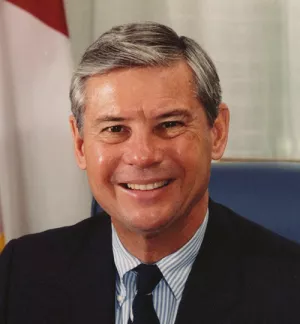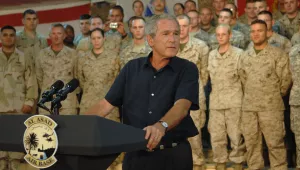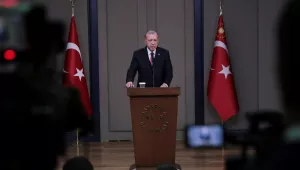THE US SENATE has just completed a contentious and partisan debate on when and under what conditions America should withdraw its troops from Iraq. Within hours of the debate's end, the White House indicated it was developing a plan to draw down troop levels in Iraq, beginning as early as this fall.
Iraq was a distraction from our primary threats. Our country has paid a high price in lives, national honor, and resources for that mistake.
The debate today focuses largely on when and how to leave Iraq. The more important debate is what to do after that. There is a strategy to exit Iraq with honor, contain Iran, and cripple America's real enemies. Each of the rolling rationales for the Iraqi war -- destruction of Saddam Hussein's weapons of mass destruction, regime change, creation of a democratically elected government -- has been found to be baseless or has been achieved. Mission accomplished.
The conditions on the ground for exit, as the president phrases it, should be the capability of the Iraqi army and law enforcement agencies to assume responsibility for security. America cannot be a permanent police force in Iraq, nor a military guarantor against the spread of civil war. The Iraqis, with US assistance, should have until the end of 2006 to train, equip, and field military forces capable of self defense. The United States and its coalition partners will be able to reduce their military presence as the Iraqi army assumes this responsibility.
The end of 2007 should be the deadline for a police force capable of enforcing the rule of law. This task must be accompanied by reforms, or in some instances original construction of Iraq's rule of law and institutions: the criminal code, courts, the penal system.
A recently retired administration official was asked, ``What do you think America should do after we are able to exit Iraq?" His answer was, ``There will be no choices; the focus on Iran will suck all the oxygen out of the room."
Iran's aspirations to be a nuclear power are by no means inconsequential. However, it is not necessary that Iran become a more costly diversion than Iraq. Bush should couple his decision to talk with Iran to a strategy that involves a credible threat of military force against Iran's nuclear facilities, an offer to expand trade and investment, the provision of technology from the West for commercial reactors, and, probably most important to Iranians, an American agreement not to attack Iran for the purpose of regime change.
The real war on terror -- the war against the murderers of 3,000 Americans on Sept. 11, 2001 -- has been suspended since at least the beginning of 2002, when specialized personnel and equipment were shipped out of Afghanistan to prepare to invade Iraq. This was directly contrary to what the president said nine days after the attack: ``Our war on terror begins with Al Qaeda, but does not end there. It will not end until every terrorist of global reach has been found, stopped, and defeated."
We must recommit to the president's call for victory, one that will be many times more difficult than when the president spoke almost five years ago. Tens of thousands of new volunteers, now trained in the skills of urban terrorism, have been added to the ranks of Al Qaeda, Hezbollah, Hamas, and other international terrorist organizations.
General Tommy Franks said a year before the Iraq invasion that ``we need to win the battle against Al Qaeda and the Taliban in Afghanistan and then move on to eradicate their cells elsewhere." When this first mission has been accomplished, America and its allies need to apply the strongest diplomatic, intelligence, surgical, military, and police force action against terrorist organizations. To do so, America must rebuild its alliances with Egypt and other pre-Iraq-invasion friends in the region, in Europe, and with Russia. State sources of anti-Americanism have to be corralled. Saudi Arabia, flush with oil money, continues to be the principal financier of global terrorism. With Iranian petro-dollars, Syria is the umbilical cord for Hezbollah and Hamas and a continuing classroom for training the most sophisticated terrorists.
The president must be honest. Winning the fight against terror will be like no other war. There are no uniformed enemy armies on the battlefield, but instead a guerrilla force emerging from cellars and back alleys. There will be deaths and casualties, and enormous demands on American will.
The president should call on all Americans to be a part of this paramount goal -- a safer nation secured through their efforts and sacrifices.
Former US Senator Bob Graham, author of ``Intelligence Matters," is a senior fellow at the Belfer Centerat Harvard University's Kennedy Schoolof Government.
Graham, Bob. “Finishing the War on Terrorism.” The Boston Globe, July 3, 2006





